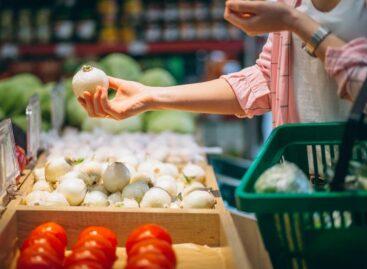COP30: Extreme weather is already affecting food production
The 30th United Nations Climate Change Conference (COP30) will be held in Belém, Brazil, where world leaders, scientists, NGOs and members of civil society will come together to discuss urgent action to address the challenges of climate change.

The Food and Agriculture Organization of the United Nations (FAO), working with countries and other partners, is working to put agriculture and food security at the heart of negotiations on the global adaptation goal, the during discussions on agricultural losses and damage, nationally determined contributions (NDCs) and national adaptation plans (NAPs), as well as discussions on climate finance, technology and just transition. Ahead of the conference, Kaveh Zahedi, Director of the FAO Climate Change, Biodiversity and Environment Division, outlined FAO’s key messages for COP30 and looking ahead. How climate extremes will affect the food production of farmers, fishers and livestock capacity?
This is not a future threat, but a phenomenon that is already happening here and now. Climate extremes are already disrupting food and agricultural processes. Crop yields are declining and unpredictable weather is making harvesting increasingly difficult. We are also seeing a rapid increase in the number of pests and diseases. Climate change is transforming every aspect of agriculture and food systems.
It is no coincidence that global hunger remains alarmingly high – affecting some 700 million people worldwide. One reason for this is the climate crisis. If we do not act, we face bleak prospects: in some regions, rain-fed agriculture may disappear, while in others, soils may become unsuitable for food production. Already, one-third of the world’s agricultural land is degraded. Now imagine what will happen if this rate continues to rise. These trends are putting severe pressure on communities and food systems around the world.
What are FAO’s key objectives for COP30?
Our key message is simple: sustainable and resilient agri-food systems are central to the fight against climate change and are crucial for ensuring food security and nutrition for the 1.2 billion people who depend on them for their livelihoods. Without transforming agriculture and food systems, achieving the goals of the Paris Agreement will be nearly impossible. FAO is therefore committed to supporting countries in the negotiations, assisting the COP Presidency in its agenda for action on agri-food systems, and giving voice to farmers, rural communities, smallholders and indigenous peoples – those on the front lines of climate change.
FAO has three key objectives for COP30 and beyond: 1) strengthening the role of agri-food systems in COP decisions and outcomes; 2) translating words into action, mainstreaming agri-food solutions into national climate strategies and their practical implementation; 3) redirect more climate finance towards solutions in the agricultural sector and scale them up for maximum impact.
Currently, only 4% of climate change-related development funds reach the sectors responsible for food, crop and livestock production, fisheries and forestry – this must change.
Related news
AMC: Hungarian organic products can be presented in Germany
🎧 Hallgasd a cikket: Lejátszás Szünet Folytatás Leállítás Nyelv: Auto…
Read more >Related news
Nestlé to sell remaining ice-cream assets but commits to Froneri venture
🎧 Hallgasd a cikket: Lejátszás Szünet Folytatás Leállítás Nyelv: Auto…
Read more >








